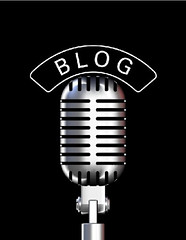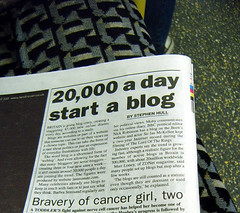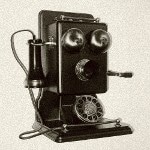Continuing with some good advice from years past, part two of the post from last week!
Last week, we started to look at four things an aspiring author’s website must do. We looked at the “get ready” and “get set” phases—gearing up for submitting your work for publication. This week, we have a few things that all authors—aspiring or not—should be doing with their websites, as well as just a little advice for soon-to-be published authors. There are volumes more to say on what an author’s website should do and have and be, but we’ll stick to these few today.
The 1-2-3 phase: attract interest for your book
 After your book has been accepted for publication, your website is an even more powerful tool. If you’re still solely on a blog on a free domain (i.e., ilurvewritin.blogspot.com), it’s time to buy your own domain, preferably YOURNAME.com. And along with a new domain, this is a good time to upgrade to a “real” website—keeping your blog, of course, but also hosting a stable website—or at least a blog with a full complement of pages. Ideally, the blog and the website design will be integrated seamless.
After your book has been accepted for publication, your website is an even more powerful tool. If you’re still solely on a blog on a free domain (i.e., ilurvewritin.blogspot.com), it’s time to buy your own domain, preferably YOURNAME.com. And along with a new domain, this is a good time to upgrade to a “real” website—keeping your blog, of course, but also hosting a stable website—or at least a blog with a full complement of pages. Ideally, the blog and the website design will be integrated seamless.
In this phase, it’s time to focus on that book to attract as much prelaunch interest as you can.
How can you do this? There are a few things you’ll want on your site before the book launches to help drum up interest:
- An awesome, engaging description of the book
- The cover (so people will recognize it in a bookstore)
- An excerpt, preferably from that incredibly intriguing beginning (with permission from your publisher)
-
- A link to your book on Amazon—hello, pre-order! (Also, you can use an affiliate link [how to sign up as an Amazon affiliate] to make a few extra pennies off any sales).
- Your book trailer, if you’re doing one.
- Anything else that will make people want to run to the bookstore on launch day!
- Send author friends (especially ones with newsletters) a short paragraph about your book, with links.
You can also look at the terms people are advertising and searching on in search engines, to see if any of those people might be interested in your site—then use those terms (“keywords”) on your site, in page titles and content, in natural language. (You’re a writer, right? So write!)
The Go! phase: sell your book
As with the 1-2-3 phase, your website can be a major vehicle for selling your book (and your backlist, if you have one). Candace E. Salima gave a great presentation on this subject at a conference I attended in April.
 How can I do this? Well, along with the above ideas, it’s also a good idea to spread the word on other websites through advertisements, reviews, releases, contests, and other publicity.
How can I do this? Well, along with the above ideas, it’s also a good idea to spread the word on other websites through advertisements, reviews, releases, contests, and other publicity.
But that’s not on your website. On your website, always, always, ALWAYS have a purchase link. Have “bonus features” to your books on the website—recipes, play lists, deleted scenes—anything you think will interest your readers.
Also, make your website somewhere that people will want to come back to—do something for them, reach out to them (see building a community), be accessible. Even if they’ve already bought your book, they’re still your customers, your readers, your fans, and striving to build a relationship with them (individually and collectively) can help sustain you, both emotionally and financially.
Always: sell YOU
Your website is also a great way to sell you—and I don’t mean prostitution. I mean building a brand that will lead to agents, editors, fans, loyal readers, subscribers, fame* and glory* (*results not typical). If you have something to say, some kind of message, that’s part of your brand. If you write in a specific genre, that’s part of your brand.
How can I do this? Make your site professional and consistent—use the same layout, color scheme, graphics, etc. on each page. If you have a theme running in your published books (especially their covers or color schemes), go with it on your website.
On your site (perhaps the about page), talk about what draws you to your genre or your message. Encourage your visitors to share their stories of why they’re interested in the same topics.
Also, talk about or at least hint at future projects to keep your readers—your potential customers—interested. If it’s feasible, think about running a regular newsletter (monthly, bimonthly, quarterly). You can keep your most loyal, interested fans updated on your progress, offer special contests, and interact with them.
Have photographs of yourself (for visitors and high quality ones for media contacts). Feature other peoples’ interviews with you (or interview yourself). Allow people to get to know you (somewhat—we all need our privacy, and we don’t all need to know if you’re wearing clean underwear right now!). This goes hand in hand with the next point, something you should always strive for with your author website:
Always: build a community
 A community based around a blog, forum or website means that people feel welcome. People can participate and interact with you. People come back.
A community based around a blog, forum or website means that people feel welcome. People can participate and interact with you. People come back.
How can I do this? Building a community around your blog or website can be as simple as encouraging discussion, responding to comments and writing on requested topics. Whatever you do with your website, interact with your visitors. Even if you don’t have a blog, you can interact with your website visitors—host a forum or weekly chats to connect personally with them. Use your email newsletter to appeal to them.
Always: build your platform
If you’re lucky enough to have a unique selling proposition just by virtue of who you are and/or what you do, bank on that. If you’re a computer engineer writing about high-tech computer hacking, tout those qualifications on your site. Once you’re published, you can also use that platform to launch yourself into public speaking opportunities on related topics—building your brand and your platform in the real world.
How can I do that? Feature your qualifications on your about page—maybe even write a “sub” page to your about page, just devoted to that. Include it in your FAQ (if you have one). Create an FAQ around that industry. List your speaking engagements on related topics, and make it clear you’re available for such gigs. (What would you speak on? Something related to your platform and your writing or research—if you’re writing fiction on high-tech computer hacking, you could speak about how to protect yourself from hackers, for example.)
Always remember: your website will be the major way you’ll interact with most of your readers and potential business associates. Use it wisely!
Next week, we’ll take a look at an easy way to set up a website!
What do you think? How else could you do these things on your website? What else should an author’s website do?
Photo credits: excited reader—Chris Johnson; bookseller—Herman Brinkman; bricklayer—Jovike






 After your book has been accepted for publication, your website is an even more powerful tool. If you’re still solely on a blog on a free domain (i.e., ilurvewritin.blogspot.com), it’s time to buy your own domain, preferably YOURNAME.com. And along with a new domain, this is a good time to upgrade to a “real” website—keeping your blog, of course, but also hosting a stable website—or at least a blog with a full complement of pages. Ideally, the blog and the website design will be integrated seamless.
After your book has been accepted for publication, your website is an even more powerful tool. If you’re still solely on a blog on a free domain (i.e., ilurvewritin.blogspot.com), it’s time to buy your own domain, preferably YOURNAME.com. And along with a new domain, this is a good time to upgrade to a “real” website—keeping your blog, of course, but also hosting a stable website—or at least a blog with a full complement of pages. Ideally, the blog and the website design will be integrated seamless. How can I do this? Well, along with the above ideas, it’s also a good idea to spread the word on other websites through advertisements, reviews, releases, contests, and other publicity.
How can I do this? Well, along with the above ideas, it’s also a good idea to spread the word on other websites through advertisements, reviews, releases, contests, and other publicity. A community based around a blog, forum or website means that people feel welcome. People can participate and interact with you. People come back.
A community based around a blog, forum or website means that people feel welcome. People can participate and interact with you. People come back.  While you’re preparing for publication, it’s also a good time to get your web presence ready—especially to find the niche where you’ll fit in the blogging and publishing (and publogging?) worlds.
While you’re preparing for publication, it’s also a good time to get your web presence ready—especially to find the niche where you’ll fit in the blogging and publishing (and publogging?) worlds.  How can I do this? Professional appearance—check out advice from professional website designer Kathleen MacIver of
How can I do this? Professional appearance—check out advice from professional website designer Kathleen MacIver of  However, do not use your website as the only medium an agent can see your query or sample pages, especially not if they ask for any writing from you. An agent or editor will expect you to email them words (either in the body of the email or as an attachment)—not a link to their website. Never make an agent do more work for your writing when they’re interested. Odds are good that they won’t follow links.
However, do not use your website as the only medium an agent can see your query or sample pages, especially not if they ask for any writing from you. An agent or editor will expect you to email them words (either in the body of the email or as an attachment)—not a link to their website. Never make an agent do more work for your writing when they’re interested. Odds are good that they won’t follow links. an “announcements” section, or call it your “articles,” that’s fine. But do have at least one section of your site where you can post your news—anything from finishing your latest work in progress to selling a short story. This is also a great place to start gathering a following, especially if you like to connect with other people, share your research and discuss the process of writing.
an “announcements” section, or call it your “articles,” that’s fine. But do have at least one section of your site where you can post your news—anything from finishing your latest work in progress to selling a short story. This is also a great place to start gathering a following, especially if you like to connect with other people, share your research and discuss the process of writing. find your website by searching for your name in the major search engines (Google, Yahoo and Bing). One good way to start with this is to buy YourName.com. If YourName.com (and YourName.net and YourName.org) is taken, experiment with middle initials, maiden names, hyphens, etc. Still nothing? Maybe you should consider a pen name that would be easier for your readers to remember, too.
find your website by searching for your name in the major search engines (Google, Yahoo and Bing). One good way to start with this is to buy YourName.com. If YourName.com (and YourName.net and YourName.org) is taken, experiment with middle initials, maiden names, hyphens, etc. Still nothing? Maybe you should consider a pen name that would be easier for your readers to remember, too. 1. A contact page. You’d be amazed how often both aspiring and published authors forget (or don’t want) to give their website visitors a way to contact them. Now, odds are low that a literary agent, editor or publisher is going to use your contact page to send you a desperate “Please, please, work with me! Your brilliance makes me cower in inferiority, but I cannot bear the thought of anyone else tainting your work!” note—but there’s always the possibility.
1. A contact page. You’d be amazed how often both aspiring and published authors forget (or don’t want) to give their website visitors a way to contact them. Now, odds are low that a literary agent, editor or publisher is going to use your contact page to send you a desperate “Please, please, work with me! Your brilliance makes me cower in inferiority, but I cannot bear the thought of anyone else tainting your work!” note—but there’s always the possibility. 



 )
)